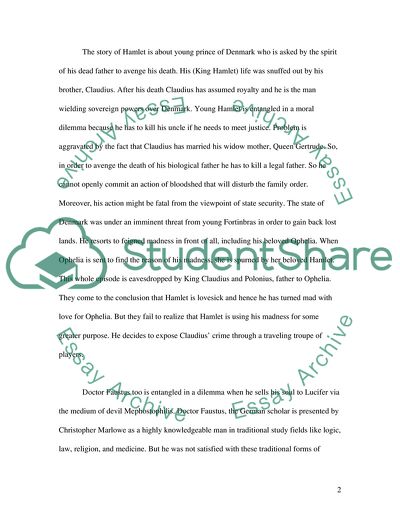Loss of Reason- Divided Self of Hamlet and Doctor Faustus Essay Example | Topics and Well Written Essays - 1500 words. https://studentshare.org/literature/1732276-compare-contrast-two-plays
Loss of Reason- Divided Self of Hamlet and Doctor Faustus Essay Example | Topics and Well Written Essays - 1500 Words. https://studentshare.org/literature/1732276-compare-contrast-two-plays.


